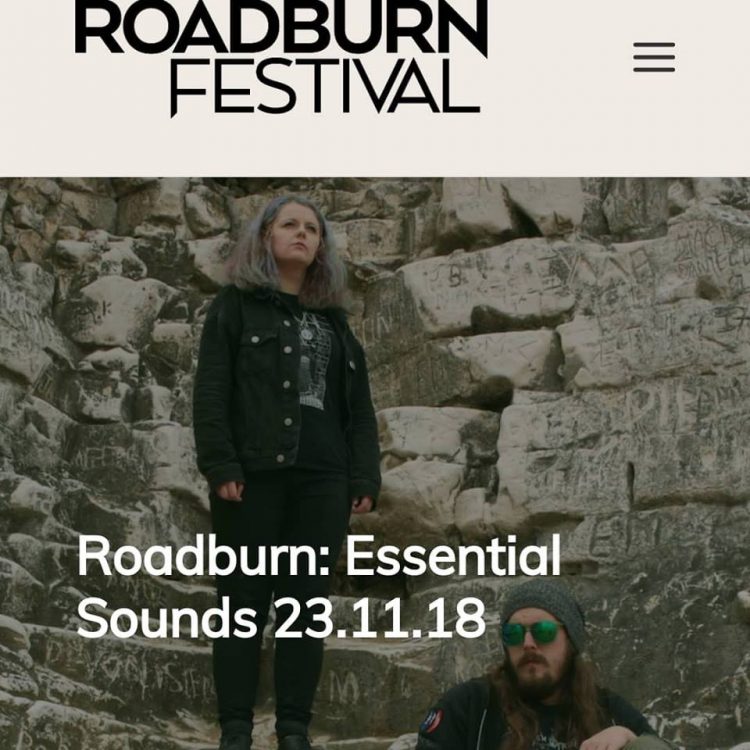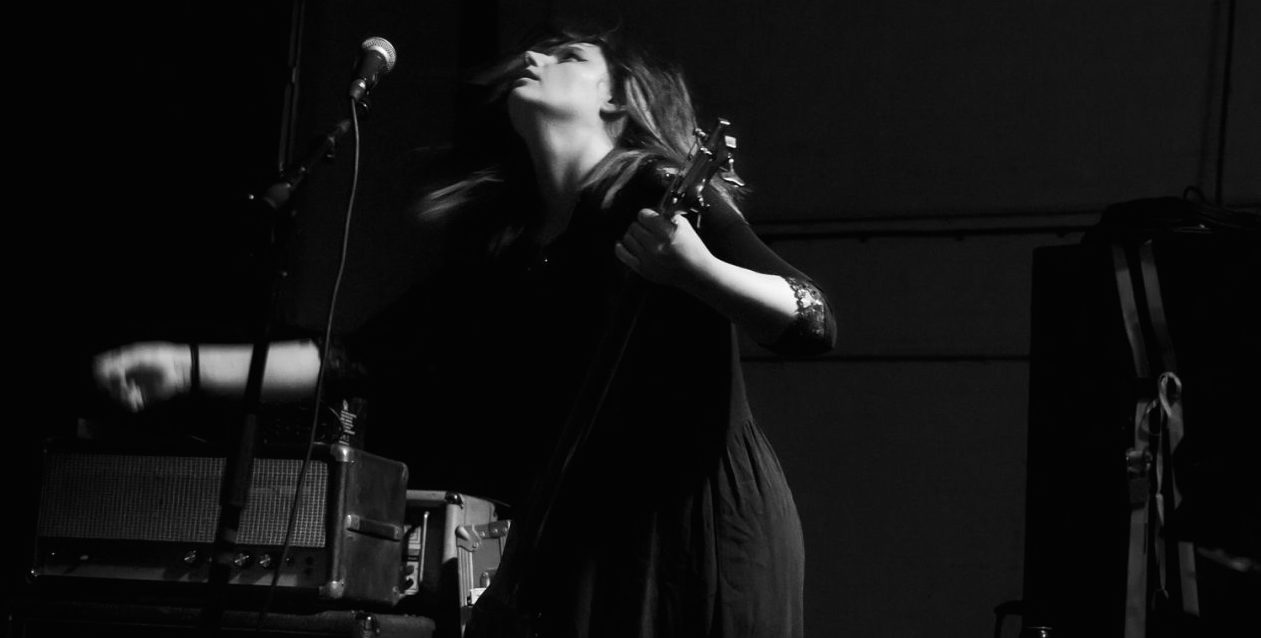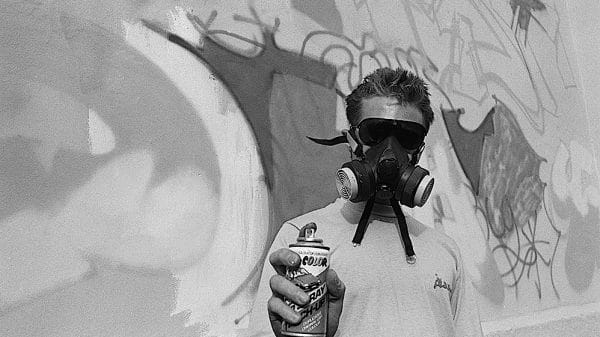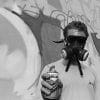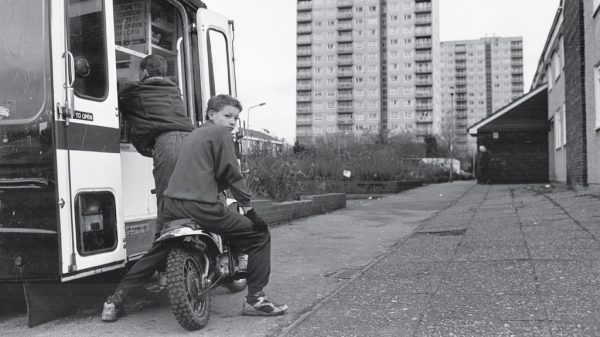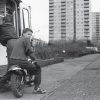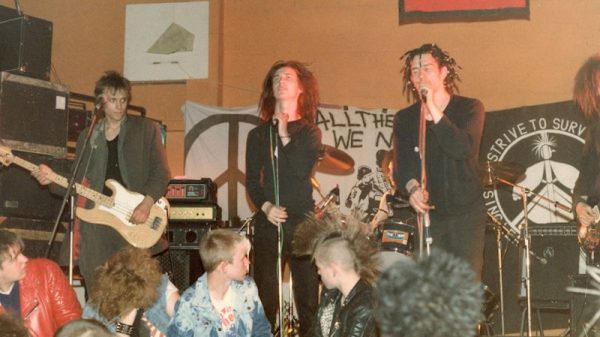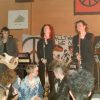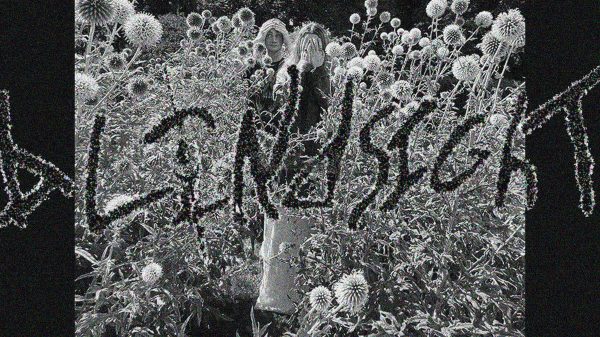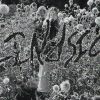Bismuth are a two-piece drone band based in the UK. This past year saw them release one of the finest sludge/doom records of 2018 in The slow dying of the Great Barrier Reef.
We caught up with the band to talk about how such a beautiful piece of art came together:
Let’s start with a bit of background on Bismuth. Tell us a little about yourselves individually, where you’re from & what brought you together?
JR – My name is Joe Rawlings, I live in Derby and I play the drums for Bismuth. I am a software developer by trade and in my free time I enjoy playing computer games and sleeping.
I was playing drums for a band called ‘spore’ from Belper 10-ish years ago, and when that project unfortunately dissolved I was informed by the guitarist that somebody in Nottingham was looking for a drummer for a similarly nasty project. That someone was Tanya, and from the get go it was pretty obvious we were going to be a good match (iirc we were wearing the same t-shirt when we first met) .
TB – A previous band had just finished, so I put an ad up for a drummer in our practice space in Nottingham. I specified that I wanted to play slowly and loudly and to see what kind of music could be made with only bass and drums. As Joe mentioned, we were both wearing the same OM t-shirt when we first met, which was a good sign! We then had a few practices and discovered it would work.
I have lived in various places in the UK and am in Lancaster right now. I study Earth Sciences with a focus on volcanoes. When I’m not studying, I work as a programmer and a research assistant investigating using machine learning to predict the biodiversity of a type of algae used in assessing water quality in rivers. From this, the reader can probably gather that environmental issues are very important to me.
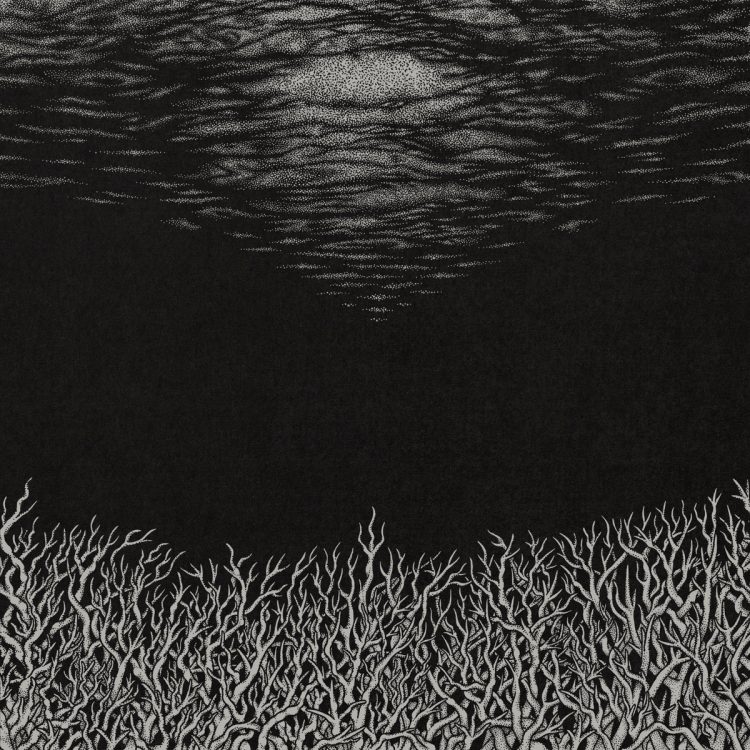
Let’s talk about your latest release, “The Slow Dying of the Great Barrier Reef” that came out in 2018. Can you tell us about the process that lead to it’s creation?
TB – We tend to work through ideas we’ve had at home through practice. After we’ve played something a few times, we usually have a good idea if we can develop the music further. As we’ve played together for a long time, we almost have an intuitive feel to how long, how loud (or not) a section of a song should last. In that regard, our music reveals itself automatically. We are very focused on what will work and what won’t. Generally, we work on the bass and drums first; once we are happy I write the vocals to fit around the music.
JR – From a purely musical standpoint, the process is the same as it’s always been – present ideas, try them out, see what works and what doesn’t. However, the process itself is a lot more focused / streamlined now, as we collectively have, I guess, ‘matured’ enough as a band to know (roughly) what’s going to work and what isn’t.
What inspired you lyrically on “The Slow Dying of the Great Barrier Reef”?
TB – Mostly the inspiration stems from my frustration at the constant finger pointing and inaction by governments on the issue of climate change and global ecosystem decline. The slow collapse of the Great Barrier Reef is but one facet of the ongoing mass extinction caused by humans. Hopefully focusing on one aspect will encourage others to investigate the issue in more depth that is presented in general media platforms.
What are your expectations or goals in terms of what you want to achieve with your music/message?
JR – Personally, I just want to do my thing and batter my drum kit, but at the same time I’m really stoked people seem to like it!
TB – I’ve never really had any expectations with regards to the band; I am thankful that we have managed to achieve as much as we have so far, and am eternally grateful for everyone that has helped us along the way. Mentally, I need to play music, so would still carry on, even if I was isolated in a cave! In terms of goals, if we manage to make folk think a little that is great. On a personal level, I am happy that we able to record music, play great shows and meet some of the best people ever.
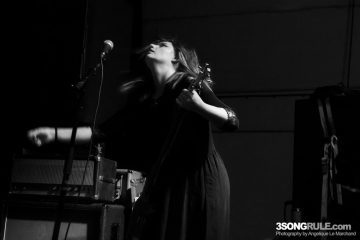
Photograph by Angelique Le Marchand at 3-Song Rule.
How would you describe the DIY community in the UK at this point in time?
TB – So many people want to share and support great music, art and other talents. The DIY scene in Nottingham is one of the best that I have been a part of. People help each other, and work together to share the thing they love more than anything and support each other when times are not so good. The UK DIY community has changed, both positively and negatively in the last 15 or so years. However, the passion remains, and that is heartening to see.
JR – I don’t think there’s enough space to write enough positive things about the UK DIY scene, so I will settle on ‘Passionate.’ The passion is seriously awe-inspiring and I have so much respect for any individual involved in the DIY scene in any way.
If you could choose a band or artist, dead or alive, to share a stage with, who would it be and why?
TB – Either Khanate or Corrupted. The atmosphere they create with their music is unparalleled in terms of tension and space.
JR – For me, I’d like to share a stage with Khanate because they were my entry point to the wonderful world of real extreme droney doomy stuff – in at the deep end, huh?
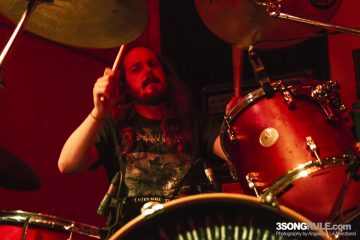
Photograph by Anquelique Le Marchand at 3 Song Rule
Can you talk a little about the concept for the artwork of ‘The Slow Dying of the Great Barrier Reef”?
TB – Our good friend Ross Mckendrick created the artwork for this album. I’d sent him a few images bleached dead reefs, a copy of the album and asked him to go with what he thought would fit the music. He then came back with the concept; a completely dead sea, with the bones of the reef cutting though the darkness.
Is the creation of this kind of ‘slow’ music a cathartic process for you?
JR – I’d say so – the majority of the music is so drawn out, every part is distinguishable and emotive so you can really ‘feel’ it. Plus I hit hard as shit, which is certainly cathartic in itself.
TB – Yes, very much so. Many of my more negative emotions are expelled when I crank my amps and scream.
What are your plans for Bismuth going into 2019 & beyond?
TB – 2019 is looking great for us so far; We have been asked to play a few festivals, including Roadburn. I’m really looking forward to that, it’s a great honour to share a bill with so many bands that I respect and admire.
JR – 2019 is looking great, we got asked to play Roadburn which has always been a ‘bucket list’ item for me so that is super cool. We also are going to be doing some recording in Chicago at Electrical Audio which I’m also really looking forward to.
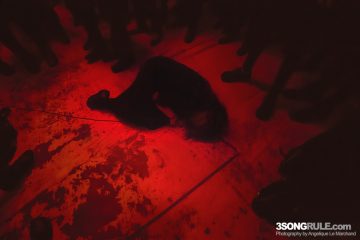
Photograph by Anquelique Le Marchand at 3 Song Rule
The slow dying of the Great Barrier Reef is available on vinyl through Dry Cough Records, Rope or Guillotine and Medusa Crush Recordings.
Also available on cassette through Tartarus Records
